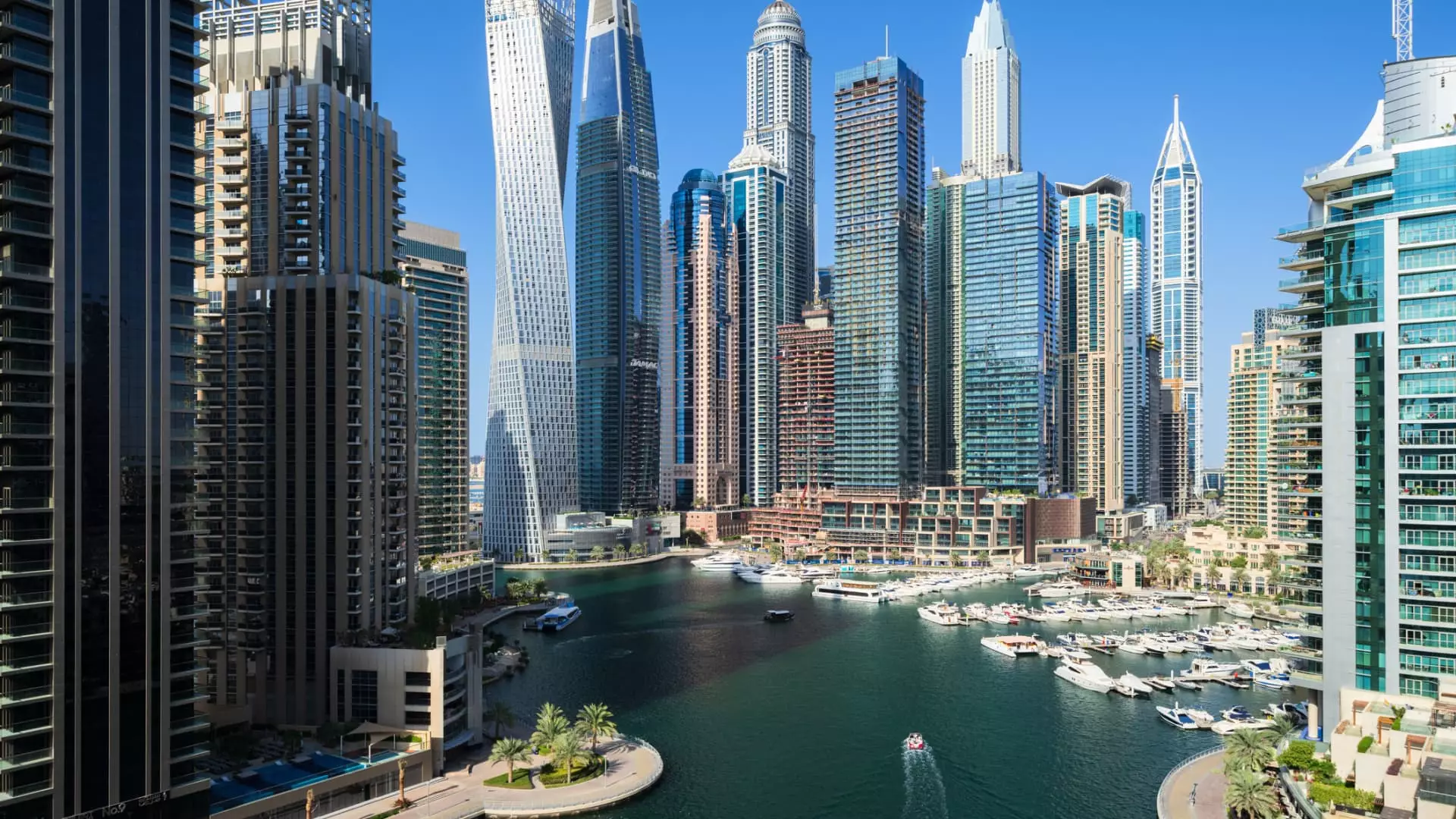Dubai’s property market is witnessing an unprecedented surge, with 2024 poised to break all previous records in terms of sales figures and property values. Local real estate firms are upbeat about the increasing demand for property, especially in the luxury segment, which is driving up prices across the board in the city. The United Arab Emirates is on track to retain its status as the world’s top wealth magnet for the third consecutive year, further fueling the frenzy in Dubai’s property sector.
While the booming property market spells good news for many, there is a growing concern highlighted by Hussain Sajwani, the chairman of Dubai property giant Damac. Sajwani voiced his worry about Dubai’s transformation into an expensive city due to the overwhelming demand for housing and amenities. The influx of talented individuals and average people has created a ripple effect, leading to challenges such as securing school admissions and escalating business costs. Sajwani emphasized the urgent need for the government to find solutions to curb inflation and address the affordability issue as the city continues to attract more residents.
The latest data on Dubai’s property market paints a picture of unprecedented growth and demand. In July 2024, property sales soared to 49.6 billion dirhams ($13.5 billion), reflecting a substantial 31.63% increase from the corresponding period in 2023. Elite Merit Real Estate, a locally-based brokerage firm, reported that the first half of 2024 witnessed over 43,000 property transactions totaling approximately AED122.9 billion, marking a remarkable 30% surge from the previous year. The rapid absorption of new inventory has been cited as a key driver of this growth, with around 80% of the units launched since 2022 already being sold.
The Influence of Global Demand
Hussain Sajwani, the chairman of Damac, attributed Dubai’s property market success to its global appeal, especially among individuals from Europe and other parts of the world. The city’s allure extends beyond wealthy individuals to include talented professionals from various industries, contributing to its sustained growth post-Covid. Sajwani highlighted Dubai’s strategic measures during the Covid-19 period, which included incentivizing tourism, offering visas to remote workers, and fostering entrepreneurship to attract new residents and businesses.
The Stability Factor
Despite Dubai’s tumultuous past marked by a boom-and-bust cycle, particularly during the 2008-2009 crisis, Sajwani expressed confidence in the city’s current stability. He credited the stringent regulations implemented by the Dubai government post the crisis for safeguarding the market against similar pitfalls. Sajwani emphasized the importance of these regulations in maintaining discipline among developers, customers, and zoning practices, thereby instilling a sense of reassurance in the market’s resilience.
Dubai’s property market presents a tale of two sides – one of unprecedented growth and soaring demand, coupled with concerns of affordability and sustainability. As the city continues to attract a diverse pool of residents and investors, striking a balance between growth and stability remains paramount to ensuring its long-term success in the global real estate landscape.

